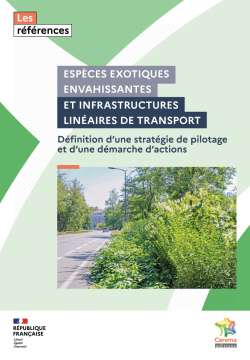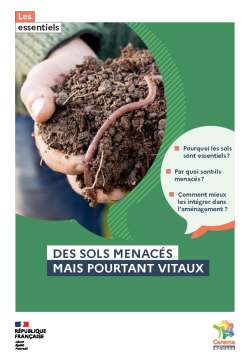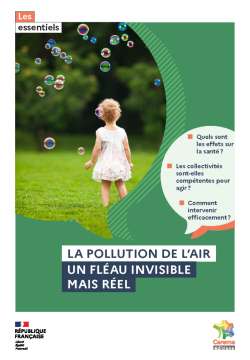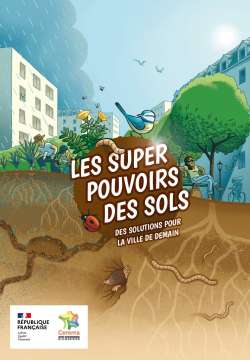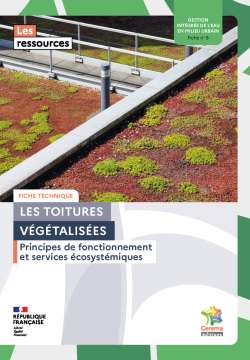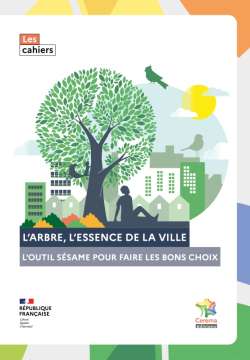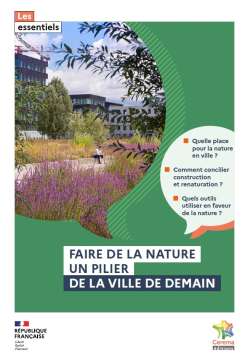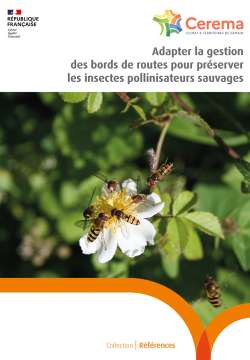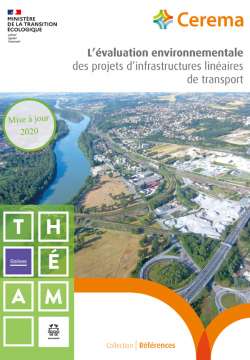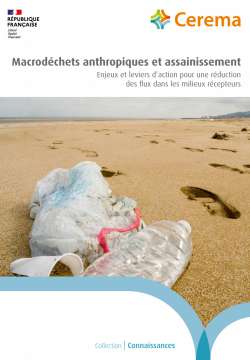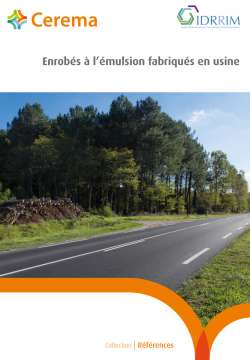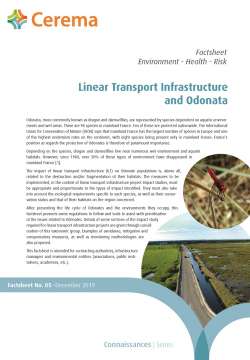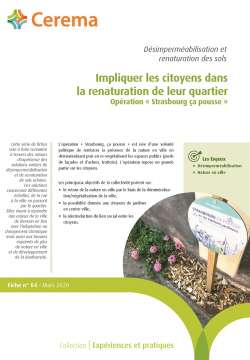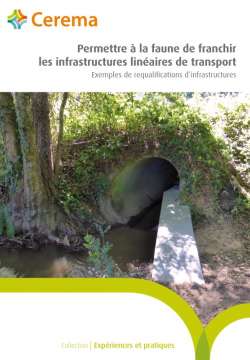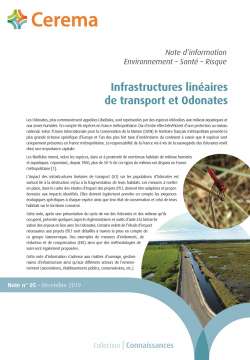
Fauna passages
Maintaining and restoring the ecological network with linear transport infrastructure
Reducing the impact of these infrastructures on biodiversity means maintaining
the existing ecological network when designing new projects, as well as restoring
ecological functions that have been interrupted during the construction of existing
infrastructure. The solutions studied take the form of wildlife crossings or the
development of green areas.
The erosion of biodiversity is picking up speed in France as it is elsewhere.
France is the European country with the fifth-highest number of globally
threatened species of fauna and flora. The causes of biodiversity destruction
include the disappearance and fragmentation of ecosystems brought about
by land transport infrastructures such as motorways or high-speed railways.
Reducing the impact of these infrastructures on biodiversity means maintaining
the existing ecological network when designing new projects, as well as restoring
ecological functions that have been interrupted during the construction of existing
infrastructure. The solutions studied take the form of wildlife crossings or the
development of green areas. This richly illustrated, comprehensive guide sets out
to foster and facilitate consideration of these issues in different linear transport
infrastructure development projects. In particular, it is an update of the former
reference guides Passages pour la grande faune, SETRA, 1993 and Aménagements
et mesures pour la petite faune, SETRA, 2005. It is intended for infrastructure
operators and, more broadly, for all those concerned with the preservation of
biodiversity in connexion with transport infrastructure development.
Preamble
P A R T I
The ecological network and land transport infrastructure
Fact sheet 1. What is an ecological network?
Fact sheet 2. What methods can be used to identify the ecological network?
Fact sheet 3. Why should the ecological network be taken into account as part of a linear transport infrastructure project?
Fact sheet 4. How to provide an effective response to the disruption of the ecological network?
P A R T II
Fauna passages: an effective measurement to re-establish transversal connectivities
1. Fauna passages on new infrastructure projects
1.1. All fauna passages
Fact sheet 5. Where to build an all fauna passage*?
Fact sheet 6. What type of all fauna passage should be chosen?
Fact sheet 7. How to size the passage?
Fact sheet 8. How to design and develop all fauna passages?
Fact sheet 9. What are the different types of construction? At what cost?
1.2. Passages and developments for small fauna
Fact sheet 10. Where to build small fauna passages?
FAct sheet 11. How to develop small waterway structures for small fauna?
Fact sheet 12. How to develop agricultural/forest/pedestrian structures for small fauna?
Fact sheet 13. How to develop specialised passages (amphibian passage - tree canopy passage)?
Fact sheet 14. How to develop common small fauna passages?
2. On existing infrastructure - Upgrading
2.1. Development and/or upgrading of existing structures
Fact sheet 15. How to improve the functionality of existing fauna passages?
Fact sheet 16. How to promote the passage of small fauna on existing structures not dedicated to fauna?
2.2. Construction of new structures on existing infrastructure
Fact sheet 17. Where and how to build an all fauna passage on existing infrastructure?
Fact sheet 18. How to create a small fauna passage on existing infrastructure?
2.3. Autres aménagements
Fact sheet 19. What are the warning systems (fauna and/or vehicles) set up to reduce wildlife vehicle collisions?
P A R T III
Green rights-of-way:
supporting longitudinal continuities
Fact sheet 20. How to integrate biodiversity into the design of rights-of-way?
Fact sheet 21. How to ensure fauna’s access to rights-of-way while ensuring its protection? Fences and barriers
P A R T IV
How to ensure the long-term efficacy of measures: maintenance, monitoring
Fact sheet 22. How to maintain fauna passages?
Fact sheet 23. How should fauna passages be monitored?
Glossary
List of abbreviations
Bibliography
Table of contents
Cerema. Fauna passages. Maintaining and restoring the ecological network, with linear transport
infrastructure. Bron: Cerema, (2023). Series: references.
ISBN: 978-2-37180-610-8 (pdf)





